If your cat is refusing to eat but continues to drink water regularly, there may be an underlying health issue. Cats are obligate carnivores, meaning that they require animal protein to survive.
In this blog post, we will discuss some of the potential causes of a cat’s refusal to eat and how you can help get them back on track!
A cat may refuse to eat but still drink water due to various reasons such as underlying health issues, dental problems, nausea, loss of appetite from infections or stress, or even a temporary inability to smell food.
- Key Takeaway
- Why My Cat Won’t Eat But Will Drink Water?
- How Long Can a Cat Live With Water But No Food?
- When Should I Be Worried About My Cat Not Eating?
- Do Cats Go Through Phases of Not Eating?
- Is It Normal For Cats To Not Eat Sometimes?
- What To Do If My Cat Is Only Drinking Water?
- What Happens If a Cat Doesn’t Eat For 4 Days?
- FAQs
- Q: How can I encourage my cat to eat and drink?
- Q: What are the common causes for a cat to stop eating?
- Q: Can a cat go without food for a day or two?
- Q: Should my cat eat wet food or dry food?
- Q: What should I do if my cat is showing signs of dehydration?
- Q: What can cause a cat to refuse to eat?
- Q: When should I contact a vet if my cat stops eating?
- Conclusion and final thoughts
Reasons Why a Cat Won’t Eat But Will Drink Water
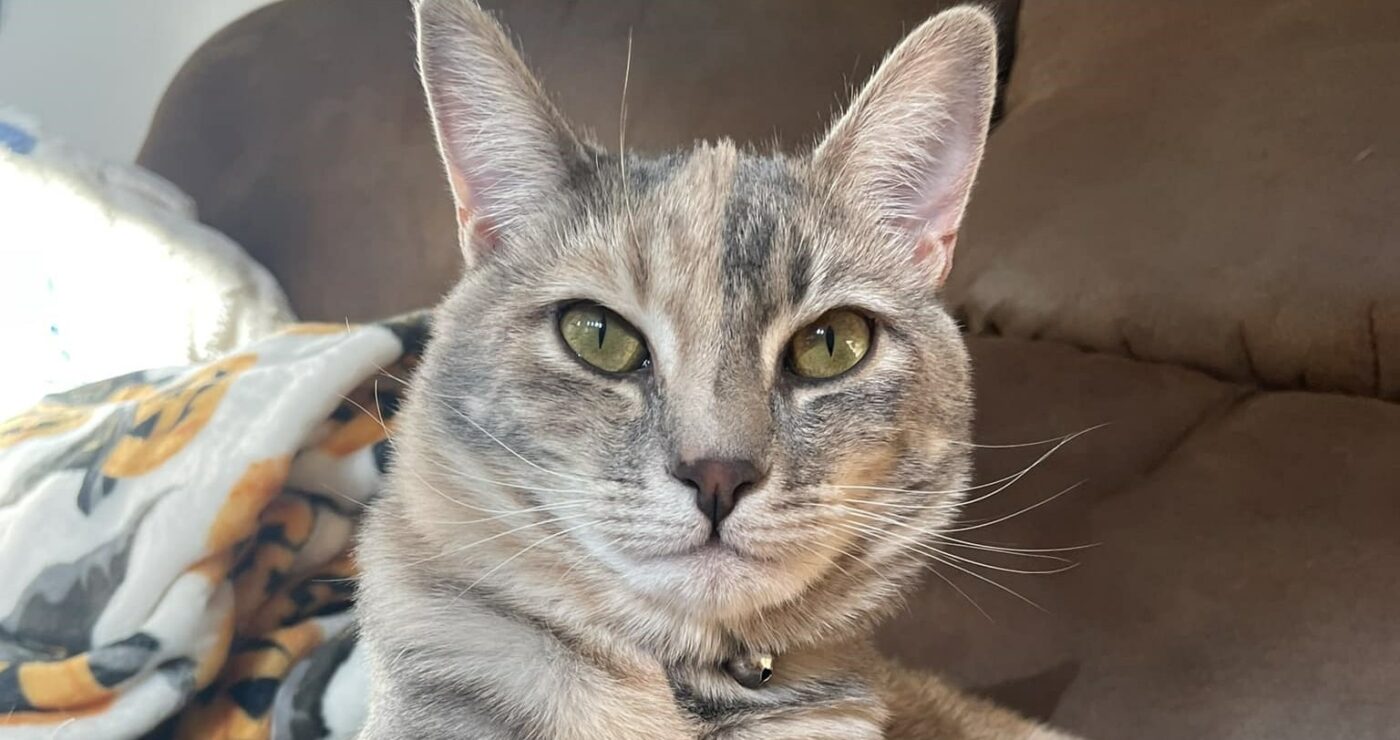
Cats usually eat twice a day and drink water about five times a day. If your cat has stopped eating but still drinks water, there could be a few possible reasons for that. Here are five reasons why your cat won’t eat but will drink water:
1. Periodontal disease
Periodontal disease is a common condition in cats that results in the inflammation of the gums and loss of the supporting structures around the teeth. In fact, periodontal disease is caused by bacteria that accumulate on the teeth and gums, which leads to irritation and inflammation.
If left untreated, periodontal disease can progress to more serious conditions, such as tooth loss and infection.
A cat that has a periodontal disease will lose interest in food simply because it is too painful to eat but will continue to drink water. Cold water will act as a pain relief whereas the food will only make the pain intensify.
The best way to prevent periodontal disease is to brush your cat’s teeth regularly with pet-safe toothpaste. You should also schedule regular dental checkups with your veterinarian to ensure that any early signs of periodontal disease are caught and treated promptly.
If your cat does develop periodontal disease, there are treatments available that can help improve their oral health.
2. Kidney disease
Kidneys are responsible for filtering toxins from the body, and as kidney function declines, the level of toxins in the blood increases.
This can make your cat feel nauseous and decrease their appetite. Additionally, as kidney disease progresses, it can cause anemia, which can also make your cat feel tired and less interested in food. However, your cat might still drink water from time to time.
Many cats simply do not feel well when they have kidney disease, and this can lead to a decreased appetite. If your cat has stopped eating or is eating less than usual, it is important to talk to your veterinarian to find out if kidney disease could be the cause.
There are a few different types of kidney disease that can affect cats. The most common type is renal failure, which occurs when the kidneys are no longer able to filter toxins from the blood properly. This can lead to a build-up of toxins in the body, which can make your cat feel very ill.
Kidney disease can also cause anemia, as the kidneys are responsible for producing a hormone that helps red blood cells carry oxygen around the body. If your cat has kidney disease, they may need medication to help control their symptoms and improve their quality of life says WebMD.
3. Pancreatitis
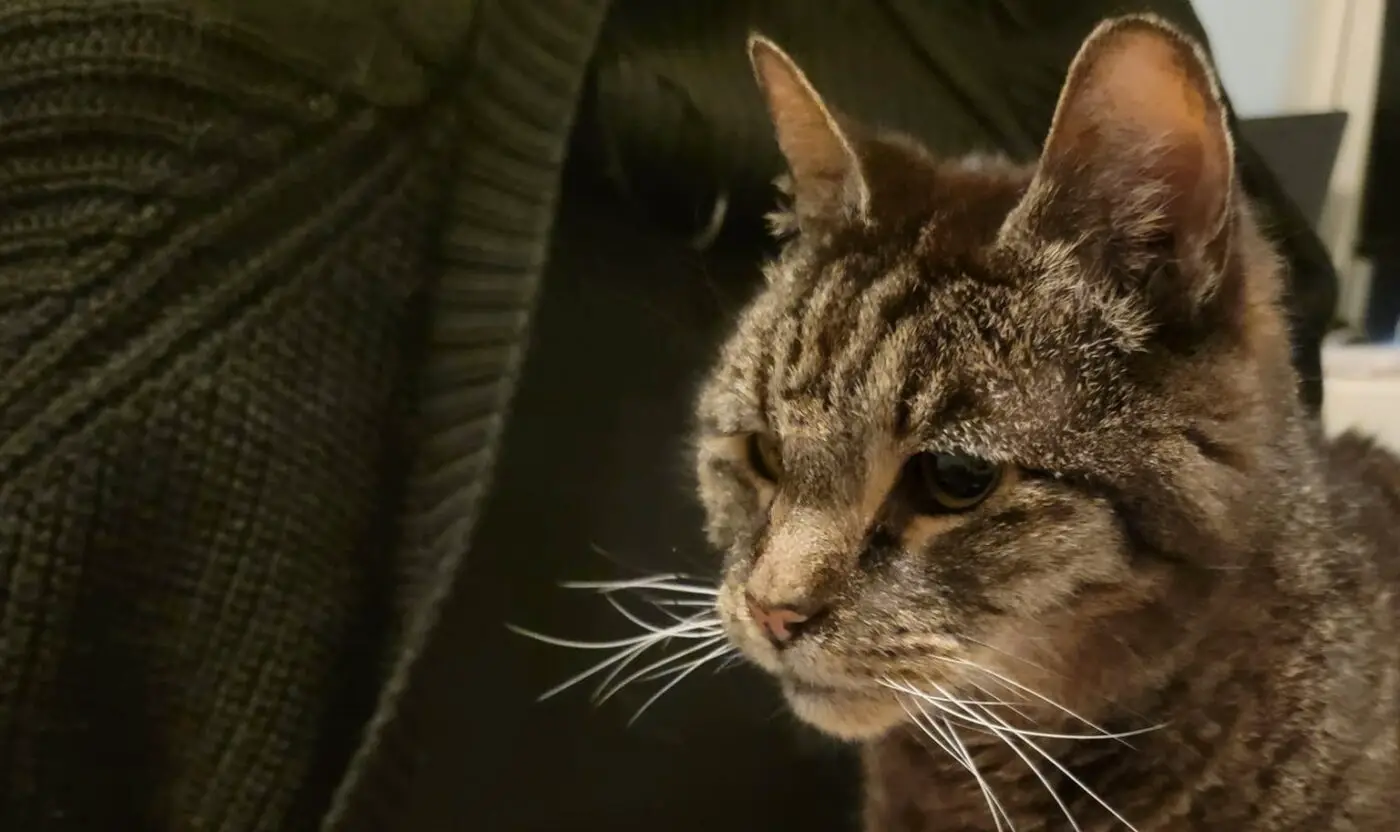
Pancreatitis is an inflammation of the pancreas. The pancreas is a small organ located behind the stomach that produces enzymes necessary for digestion. Pancreatitis can be caused by a variety of things, including infection, trauma, certain medications, and certain diseases.
Cats with pancreatitis often lose their appetite because the inflammation causes the pancreas to produce fewer digestive enzymes. This can lead to nausea and vomiting, which can further decrease appetite.
In some cases, cats may need to be hospitalized and receive IV fluids and nutritional support until they are able to eat again on their own.
4. Gastrointestinal issues
One common reason why cats may lose their appetite but still drink water is if they are experiencing gastrointestinal issues. Gastrointestinal issues can be caused by a number of things, such as stress, food intolerance, or infection.
If your cat is vomiting or has diarrhea, this can lead to them losing their appetite.
Additionally, if your cat is constipated, this can also make them not want to eat.
There are a few things you can do to help ease your cat’s symptoms. First, make sure they are drinking plenty of water.
You can also give them small meals more often instead of large ones. Finally, avoid giving them anything that could aggravate their stomachs, such as dairy products or fatty foods says The Beacon Vet.
5. Stress and anxiety
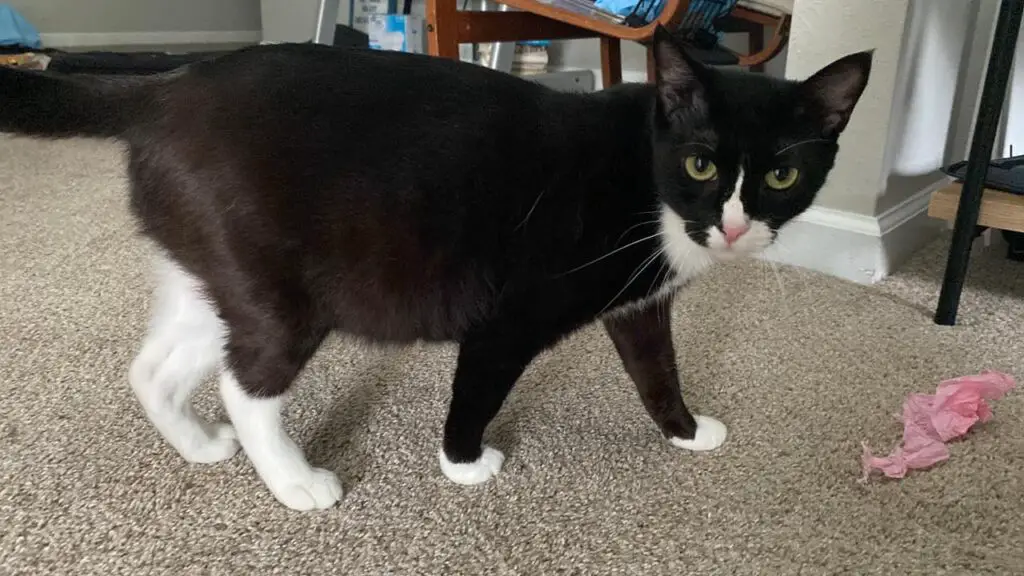
Stress increases the level of a hormone called cortisol in your cat’s body. Cortisol is also released when your cat experiences physical pain, such as from an injury. High levels of cortisol can decrease appetite and lead to weight loss.
Cats with high levels of cortisol in their system tend to drink more water than cats with lower levels of the hormone. This is because cortisol helps the body regulate fluid balance.
There are many things that can cause stress in cats including changes in their environment (such as moving to a new home), changes in their routine (such as a new pet or baby in the home), not having enough places to hide or climb, and even changes in the weather.
When cats are stressed, they may lose their appetite or eat less than usual says The Spruce Pets.
6. Infections or system diseases
Infections or systemic diseases can often be the reason why a cat won’t eat but will continue to drink water.
When a cat is suffering from an infection or a systemic disease like kidney disease, pancreatitis, or dental disease, it may lose its appetite while its thirst remains unaffected.
This is because the disease can cause discomfort or pain during eating, or even alter the cat’s sense of smell, making food less appealing.
On the other hand, the disease might increase the cat’s need for hydration, or the cat might simply find drinking water less painful or uncomfortable than eating.
From my perspective as a veterinarian, I’ve had many cases where a cat’s refusal to eat but willingness to drink water was the first sign of an underlying health issue.
For instance, cats with dental diseases often show this behavior because eating can cause them pain, while drinking water does not.
Similarly, cats with kidney disease or other systemic diseases might drink more water due to increased thirst, a common symptom of these conditions says Veterinary Emergency Group.
7. Changes in household dynamics
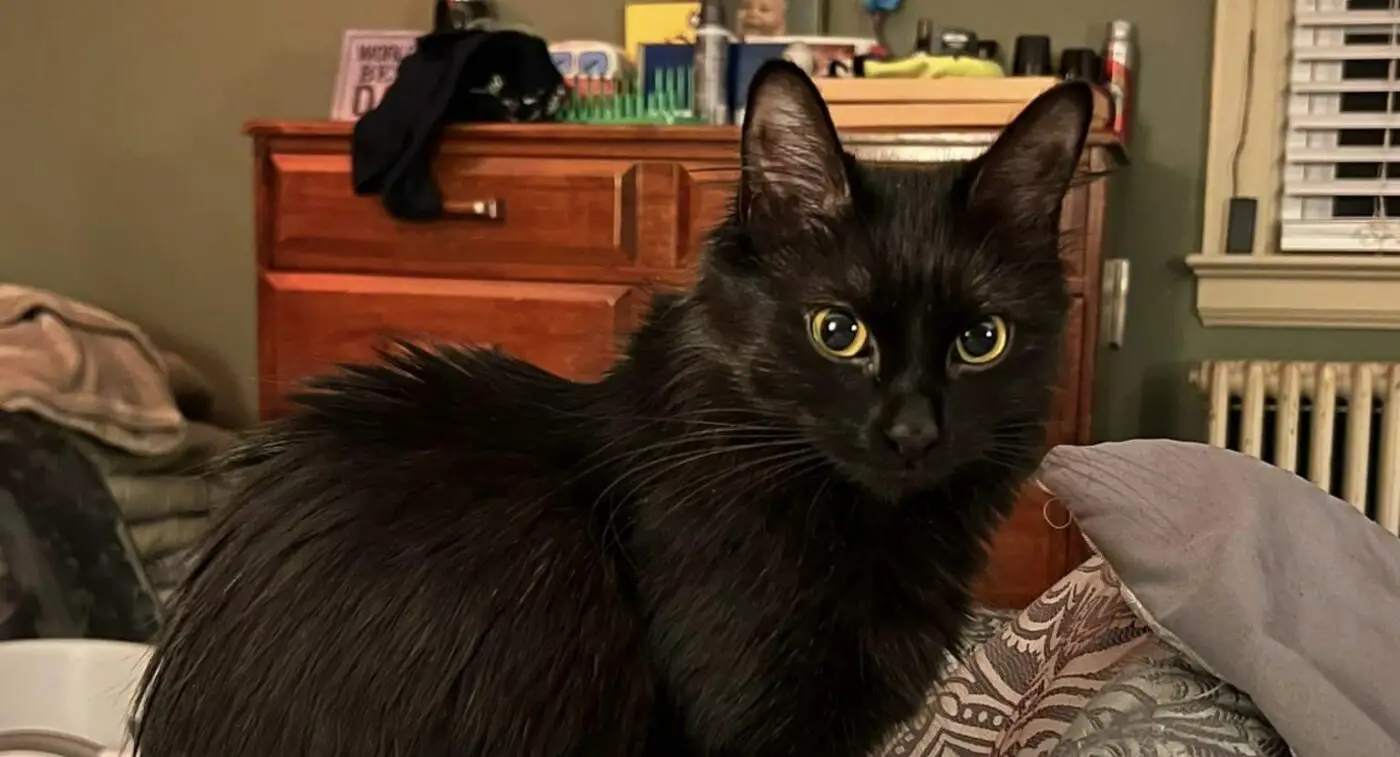
Changes in household dynamics can significantly impact a cat’s behavior, leading to situations where a cat might refuse to eat but still drink water.
Cats are creatures of habit and highly sensitive to their environment.
Any alterations in their routine or the household, such as the introduction of a new pet, a new family member, moving houses, or even rearranging furniture, can cause stress and anxiety in cats. This stress can manifest in various ways, including loss of appetite.
However, the need for hydration remains, which is why a cat may continue to drink water even if they’re not eating.
In my years as a veterinarian, I’ve seen numerous instances where changes in a household have led to changes in a cat’s eating habits.
One case that stands out involved a cat that stopped eating when its owner brought home a new puppy. The cat was clearly stressed by the new addition and expressed it by refusing food, though it continued to drink water.
Once the owner took steps to gradually introduce the two pets and create a peaceful cohabitating environment, the cat’s appetite returned says PetMD.
8. Past negative experiences with food
Past negative experiences with food can cause a cat to refuse to eat, yet continue to drink water.
Cats have excellent memories and can associate certain foods with unpleasant experiences, such as stomach upset or choking.
If they’ve had a bad experience with a particular type of food, they may avoid eating altogether to prevent a recurrence of the discomfort. Despite this avoidance of food, their need for hydration persists, which is why they continue to drink water.
In my practice as a veterinarian, I have encountered cases where a cat’s refusal to eat was linked to a past negative experience with food.
I recall a cat that had choked on a certain brand of dry food. After that incident, the cat refused to eat not only that specific brand but any dry food altogether.
It continued to drink water, and it was only after a gradual reintroduction of different food textures that the cat began to eat again says EVCC.
9. Depression or grief
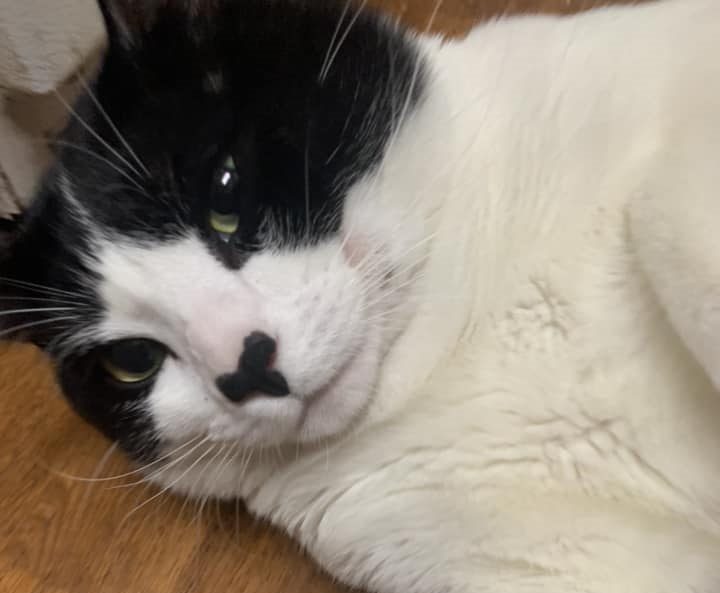
Depression or grief can greatly affect a cat’s appetite, resulting in scenarios where a cat refuses to eat but continues to drink water.
Cats, like humans, can experience emotional distress following a loss or significant change, leading to symptoms of depression or grief.
These symptoms can include loss of appetite, lethargy, and changes in behavior. Despite their lack of interest in food, cats will often continue to drink water to meet their hydration needs.
From my own experience as a veterinarian, I’ve come across several instances where grief has impacted a cat’s eating habits.
One case that remains vivid in my memory involved a cat that stopped eating after the loss of its companion.
The owner reported that the cat would sit by its water dish, drinking, but showed no interest in food. Over time, with careful observation, supportive care, and patience, the cat gradually began to show interest in food again.
10. Changes in food type or brand
Changes in food type or brand can cause a cat to stop eating while continuing to drink water.
Cats are known for their particular eating habits and can be quite sensitive to changes in their diet.
If a cat’s food type or brand changes suddenly, it may refuse to eat the new food out of unfamiliarity or dislike for the taste or texture says PetPlan.
Despite this change in eating behavior, cats will still drink water to maintain their hydration levels.
During my years as a veterinarian, I’ve seen many instances where a change in diet caused a cat to stop eating.
For example, I remember a case where an owner decided to switch from wet to dry food for their cat.
The cat, having been used to the texture and taste of wet food, refused to eat the dry kibbles. However, they continued to drink water regularly.
It took a gradual transition from wet to dry food, slowly mixing both types over several weeks before the cat accepted the new diet.
11. Discomfort in the eating area
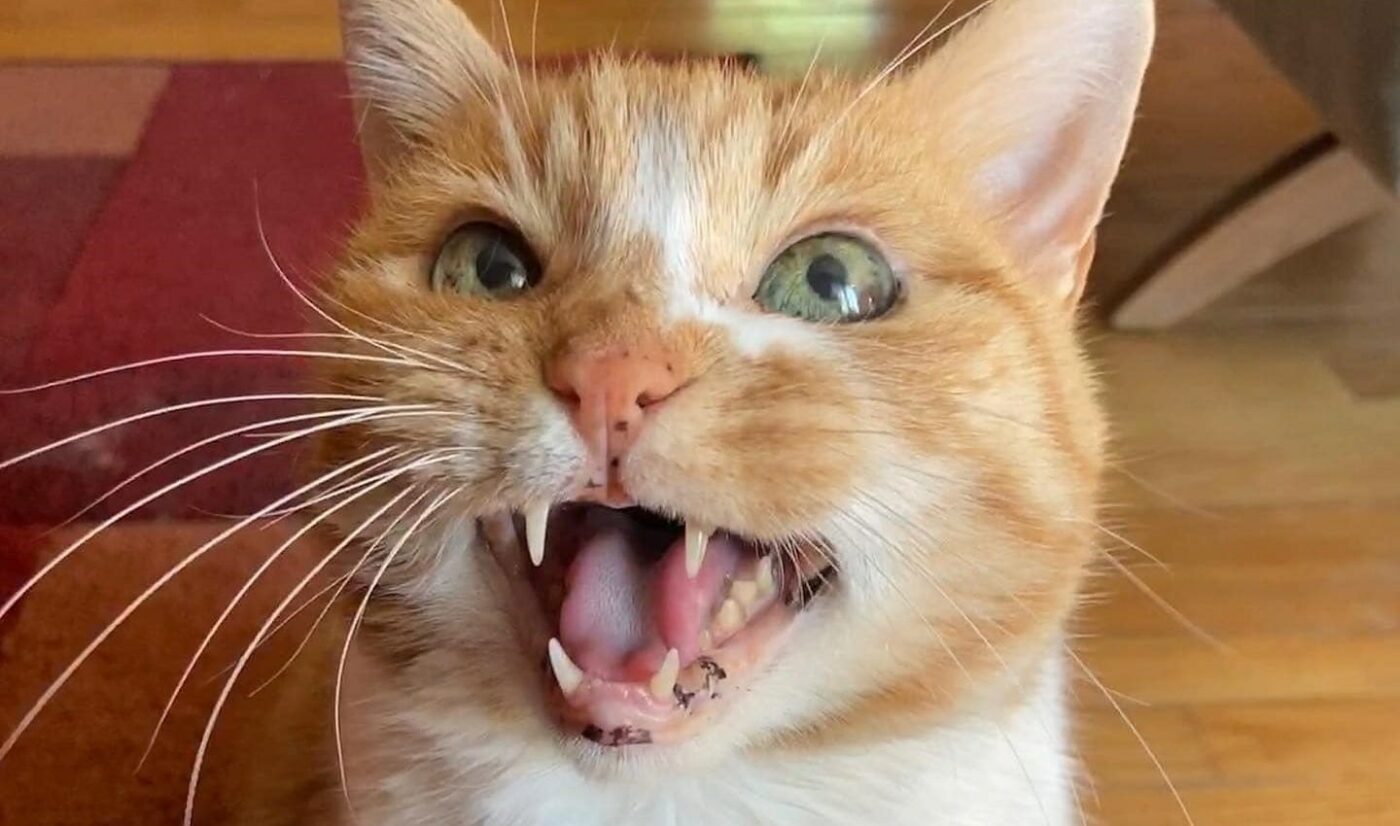
Discomfort in the eating area can lead to a situation where a cat refuses to eat but continues to drink water.
Cats are sensitive creatures and can be easily disturbed by changes or discomfort in their environment.
If the area where they eat is not comfortable or has been altered in some way, they may choose to avoid eating there.
This could include factors like noise, other animals, dirty dishes, or even the location of the food dish. However, their need for hydration remains, leading them to continue drinking water.
Understanding Cat’s Basic Eating and Drinking Habits
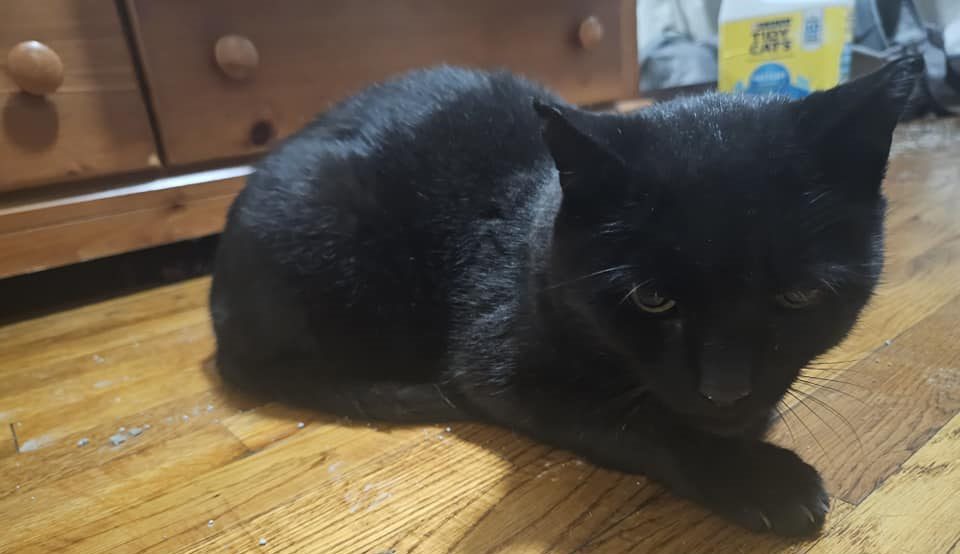
Indoor cats typically exhibit unique eating and drinking habits that are influenced by their environment, their diet, and their innate behaviors as cats.
Indoor cats often tend to eat smaller meals throughout the day, reflecting their natural instinct to hunt and consume small prey multiple times a day.
This feeding behavior can be accommodated by providing them with a steady supply of nutritious cat food that they can access throughout the day.
However, it’s important to monitor portion sizes to prevent overeating and weight gain, a common issue among indoor cats due to their lower activity levels.
When it comes to drinking, indoor cats may not seem to drink a lot of water. This is because cats, in general, evolved in desert-like environments and have adapted to get most of their hydration from the food they eat.
Therefore, incorporating wet food into their diet can be a good way to ensure they receive adequate hydration.
Speaking from my own experience, I’ve observed that indoor cats can develop unique habits due to the comfort and predictability of their environment.
Some may become ‘grazers,’ eating small amounts frequently, while others might stick to a more scheduled feeding routine.
It’s essential to understand your cat’s individual habits and adjust their feeding accordingly, always keeping an eye out for any changes that might indicate health issues.
What To Do If Your Cat Won’t Eat
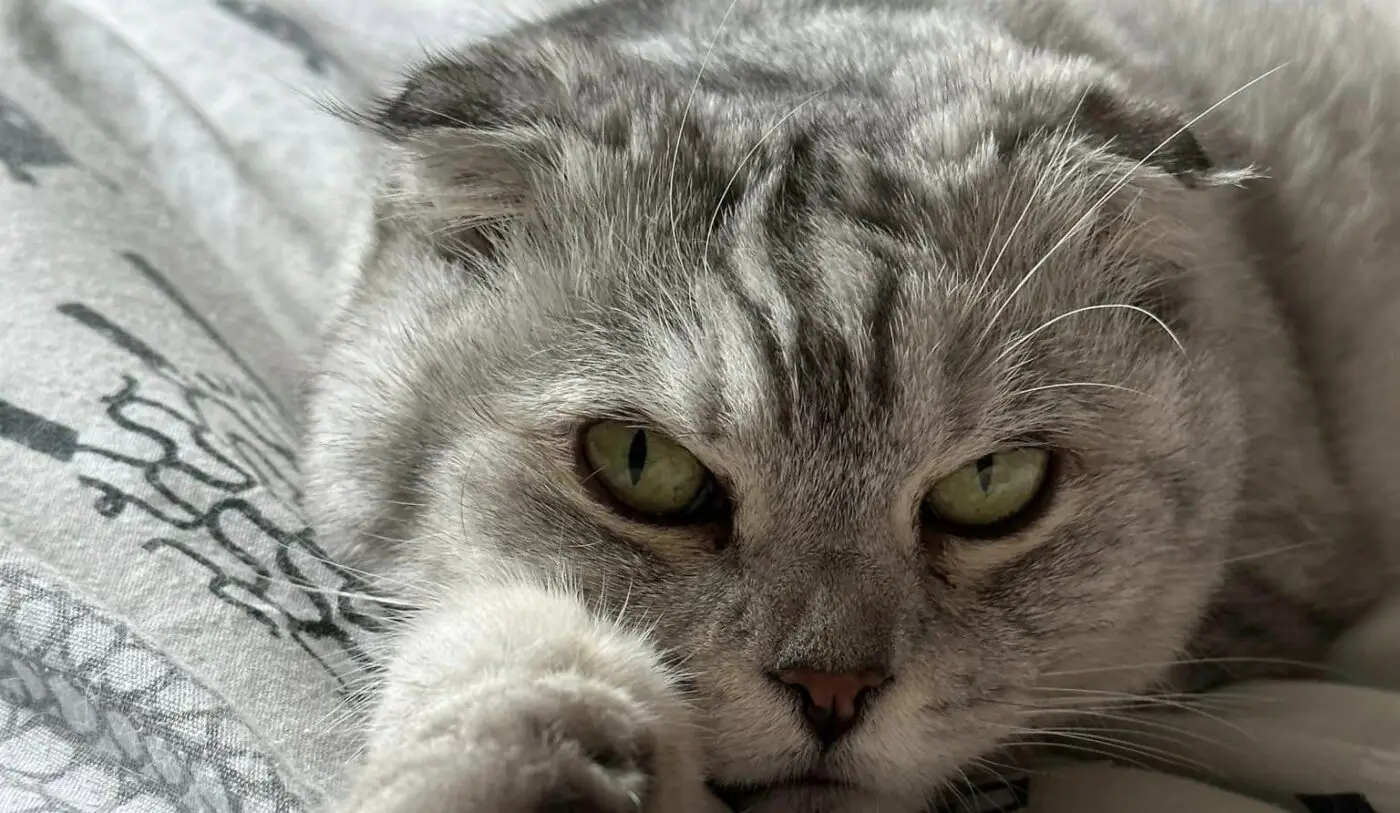
As a veterinarian, I can affirm that stimulating a cat’s appetite often involves warming their food, adding enticing toppers, offering a variety of dishes, and consulting with a vet for professional guidance.
Warming the Food
From my experience, warming the cat’s food can make it more appealing. Heat enhances the aroma of the food, which could stimulate your feline’s interest in eating.
Make sure the food is just slightly warm and not hot, to ensure it’s safe for your pet.
Adding Enticing Toppers
Sprinkling a bit of something extra on top of the cat’s food can also be beneficial.
This could be a small amount of grated cheese, fish oil, chicken broth, or even tuna juice.
They might only lick at the topper initially, but it can help spark their interest in the food underneath.
Offering a Variety of Foods
If your cat is refusing to eat their usual food, try offering them a different type.
You can experiment with various commercial canned foods to see which one your cat prefers.
Do remember to introduce new foods gradually to avoid upsetting their stomach.
Consultation with a Vet
Lastly, if your cat’s eating habits change suddenly or they refuse to eat entirely, it’s crucial to consult with a vet.
As a vet myself, I’ve seen how early intervention can help identify the root cause of the issue and provide appropriate treatment.
It’s always better to seek professional advice when you notice changes in your pet’s behavior or health.
How Long Can a Cat Live With Water But No Food?
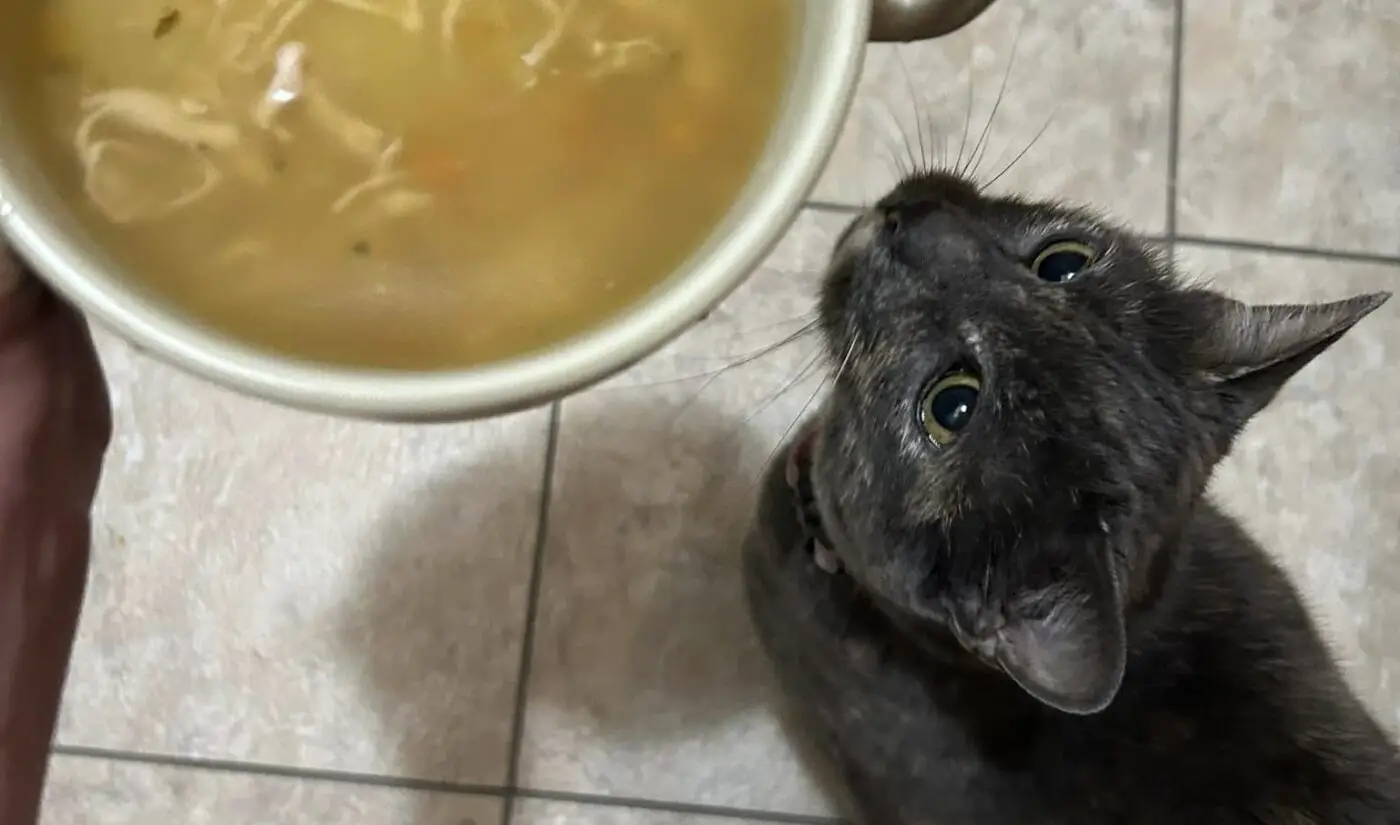
The average cat can survive for about two weeks without food, but only a few days without water. However, there have been cases of cats surviving for up to six weeks without food. Water is essential for a cat’s survival as it helps to keep them hydrated and prevents their organs from shutting down.
Cats are typically able to live much longer with no food than they can with no water. In fact, the longest recorded case of a cat surviving without food was 28 days.
However, this cat was also receiving daily water injections and was under veterinary care. Without proper care, most cats would not be able to survive more than two weeks without food.
Cats have very high metabolisms and require more water than other animals, proportionately speaking. They have very little body fat to help them retain water, so they tend to dehydrate quickly.
Their kidneys are very efficient at extracting water from their food and reusing it.
But, this also means that they need a constant supply of fresh water to keep those kidneys working properly.
Cats sweat only through their paws, so they don’t have an easy way to cool themselves off when they get too warm. For all these reasons, it’s important to make sure your cat always has access to clean water.
Cats are able to live for weeks without food because they have a very high metabolism.
This means that their bodies are able to break down food and use it for energy much faster than other animals. Cats also have a higher percentage of body fat than most animals.
This means they can go longer without eating before they start to feel the effects of hunger.
How To Treat a Cat That Won’t Eat But Drinks Water
Here is how to treat a cat that won’t eat but drinks water:
1. Identify any underlying health issues
A cat’s refusal to eat could be a sign of an underlying health issue, such as kidney disease, gastrointestinal problems, and more.
It’s important to monitor any unusual behavior in your cat, such as lethargy, vomiting, or changes in litter box habits. These might indicate a serious health problem that requires immediate veterinary attention.
2. Stimulate their appetite
If your cat’s mouth is clear of any obstructions or sores, you can try stimulating their appetite by warming their food or adding some liquid from a can of tuna.
Cats have a keen sense of smell, and the aroma of warm food or fish might entice them to eat. However, if your cat refuses to eat for more than three days, it’s crucial to consult with a vet.
3. Try a kitty water fountain
Some cats prefer moving water to sitting water. The noise and motion of a kitty water fountain might encourage your cat to drink more.
This can be especially helpful if your cat isn’t drinking enough water, which can lead to dehydration and further health complications.
4. Offer tasty liquids
In some cases, offering your cat water drained from a can of tuna packed in water might help. If your cat drinks it, you may be able to gradually introduce small amounts of solids.
This method leverages your cat’s love for fish and can be a useful trick to get them to eat again.
5. Consider medications
Addressing the underlying cause is key, but in some cases, medications might be necessary.
Certain drugs can stimulate appetite and prevent nausea, which might help your cat start eating again. Always consult with your veterinarian before giving your cat any medication.
6. Provide hydration
If your cat won’t eat, you can try giving her two droppers (cc size) of unflavored Pedialyte every ten minutes for an hour. Next, water down her food to encourage consumption.
This method helps keep your cat hydrated and might also make the food more appealing.
7. Heat the food or add enticing ingredients
Heating the food or mixing in fish oil, broth (ensure it does not contain onions, which are toxic to cats), or cooked egg could help to encourage your cat to eat.
Warm food can be more aromatic and thus more appealing to cats. Similarly, adding flavorful ingredients can make the food more enticing.
8. Mix wet and dry food
You can try mixing some canned food with your cat’s daily allotted dry food.
The stinkier the concoction, the better! You can also add ice cubes to the water as it can be fun and enticing for your cat.
When Should I Be Worried About My Cat Not Eating?
If your cat hasn’t eaten for more than 24 hours, it could be a cause for concern and you should consider seeking veterinary advice.
Cats, unlike many other animals, have a metabolic response to fasting that can lead to severe health issues.
They are obligate carnivores and their bodies are designed to consume and process food frequently.
When they go without eating for a prolonged period, their bodies begin to use fat stores for energy. This fat must be processed by the liver, which in turn requires a good amount of protein.
Without sufficient intake of protein, the liver can become overwhelmed and a potentially life-threatening condition called hepatic lipidosis, or fatty liver disease, can occur.
Do Cats Go Through Phases of Not Eating?
Yes, cats can go through phases of not eating due to a variety of reasons such as stress, disliking their food, or health issues.
Cats, like humans, have their own individual habits and behaviors when it comes to eating. There could be instances where they might not eat much but still act normally.
A common reason for this behavior is simply that they don’t like the food being offered, especially if it’s new.
Stress can also lead to reduced appetite in cats. You may notice your cat hiding more or showing signs of anxiety along with eating less.
Health issues are another major factor that can affect a cat’s eating habits. Dental pain, kidney disease, and conditions such as cancer or pancreatitis can cause a loss of appetite in cats.
Even minor stomach and digestive ailments, like viruses and bacterial infections, can cause them to stop eating temporarily.
Is It Normal For Cats To Not Eat Sometimes?
Yes, it’s normal for cats to sometimes eat less or even skip a meal, but consistent refusal to eat should be a cause for concern.
Cats are known to be finicky eaters and may show changes in their eating habits based on various factors.
For instance, they might refuse food if they’re not fond of the type or flavor, or if there’s a change in their environment that is causing them stress. It’s also common for cats to eat less during hotter weather or when they’re less active.
However, if your cat consistently refuses to eat, it could signal an underlying health issue.
Conditions such as dental problems, gastrointestinal issues, or more serious illnesses like kidney disease or cancer can lead to a loss of appetite.
Even psychological factors like stress or depression can cause a cat to stop eating.
What Happens If a Cat Doesn’t Eat For 4 Days?
If a cat doesn’t eat for four days, it’s highly likely that they are suffering from a serious health issue and they are at risk of developing a potentially fatal condition called hepatic lipidosis.
When a cat doesn’t eat for an extended period, its body starts using fat reserves for energy.
These fat reserves are sent to the liver to be converted into usable energy, but if this process happens too quickly, the liver becomes overwhelmed with fat and can’t function properly.
This condition is known as hepatic lipidosis or fatty liver disease.
Symptoms of hepatic lipidosis include:
- Jaundice (yellowing of the eyes, skin, and gums)
- Weight loss
- Vomiting
- Diarrhea
- Drooling
- Lethargy
Hepatic lipidosis is a serious and potentially life-threatening condition. If your cat hasn’t eaten for four days, it’s crucial to seek immediate veterinary attention.
When To Seek Veterinary Assistance For a Cat That Doesn’t Eat
Veterinary assistance should be sought for a cat not eating if the cat has missed more than one or two meals, is over 7 years old, or shows other signs of illness such as symptoms of kidney disease.
When a cat stops eating, it could be indicative of several underlying health issues. It’s critical to monitor their eating habits closely, and if they haven’t eaten for 24-36 hours, it’s time to consult a vet.
This is especially important for older cats, as they are more susceptible to diseases like kidney problems, which can lead to loss of appetite.
In my years of experience as a vet, I’ve seen many cases where cats stop eating due to illness, stress, or changes in their environment.
Sometimes it’s a simple fix like changing their diet or managing their stress better. But other times, it’s a symptom of a more serious condition that requires immediate attention.
For example, I once treated an older cat who had stopped eating and was showing signs of lethargy.
Upon examination, we discovered she had kidney disease. With prompt treatment, she was able to recover and regain her appetite.
FAQs
Q: How can I encourage my cat to eat and drink?
A: To encourage your cat to eat, you can try offering a different type of food, such as wet food or a different brand. Warm the food slightly to enhance its aroma, and make sure it is fresh. You can also try hand feeding or using food puzzles to make mealtime more engaging. To encourage your cat to drink more water, provide fresh water in a clean bowl and consider using a water fountain, as many cats prefer running water.
Q: What are the common causes for a cat to stop eating?
A: Common causes for a cat to stop eating include dental problems, digestive issues, stress, illness, a sudden change in diet, medication side effects, or even emotional factors. It’s important to monitor your cat’s behavior and consult a veterinarian if the loss of appetite persists.
Q: Can a cat go without food for a day or two?
A: While a healthy adult cat can survive for a day or two without food, it is not ideal for their overall well-being. Cats have specific nutritional requirements, and their bodies need regular sustenance. If your cat refuses to eat for more than 24-48 hours, it is best to consult a veterinary professional for guidance and evaluation.
Q: Should my cat eat wet food or dry food?
A: Both wet and dry food options can be suitable for cats, and the choice depends on factors such as your cat’s age, health condition, and personal preference. Wet food provides more moisture, which can be beneficial for cats who don’t drink much water. Dry food, on the other hand, helps maintain dental health and is often more cost-effective. It is recommended to consult your vet to determine the best diet for your specific feline friend.
Q: What should I do if my cat is showing signs of dehydration?
A: If you suspect that your cat is dehydrated, it is crucial to contact your vet right away. Signs of dehydration in cats include dry gums, sunken eyes, lethargy, loss of appetite, and decreased urination. Your vet will be able to assess the situation and provide necessary treatment, which may include fluid therapy.
Q: What can cause a cat to refuse to eat?
A: There are various reasons why a cat may refuse to eat. Some common causes include dental issues, illness, stress, anxiety, medication side effects, recent vaccination, a change in the environment, and even dislike for a particular type of food. If your cat’s refusal to eat persists, it is recommended to consult a veterinary professional to identify and address the underlying cause.
Q: When should I contact a vet if my cat stops eating?
A: If your cat stops eating for more than 24-48 hours, contact your vet as soon as possible. Loss of appetite can be a symptom of various health issues, and early intervention can help prevent further complications. Your vet will be able to evaluate your cat’s overall health, perform necessary tests, and recommend appropriate treatment.
Conclusion and final thoughts
One of the main conclusions from this blog post is that cats may refuse to eat for a variety of reasons, such as stress or illness.
It is important to take note if your cat stops eating and seek veterinary advice in order to determine the underlying cause and provide appropriate treatment.
Additionally, offering fresh food and providing an environment free from stress are often effective measures for encouraging cats to eat.
Finally, always ensure that your cat has plenty of access to clean, fresh drinking water.
You should be able to help get your pet back on track with its normal eating pattern.




